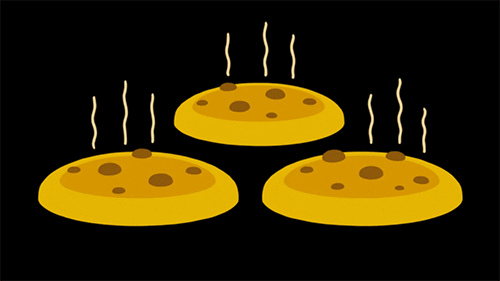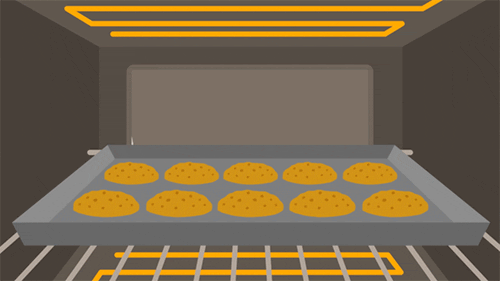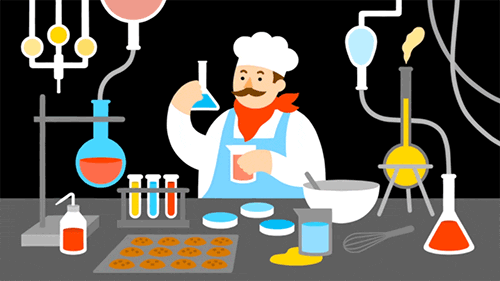The Six Types Of Middle-Earth Names
The Six Types of Middle-Earth Names
1. Characters whose Names are Secretly Insults:

Samwise: means “Half-wise” or “Half-wit.” He is Stupid Gamgee
Faramir: Boromir’s name means “steadfast jewel”, but Faramir’s name just means “sufficient jewel.”
Sufficient.
Denethor took one look at baby Faramir and thought “eh I guess he exists or whatever” which is very in character
2. Characters who Have Way Too Many Names

Examples include Aragorn son of Arathorn son of Arador heir of Isildur Elendil’s son, descendant of Numenor, Thorongill, Eagle of the Star, Dúnadan, Strider, Wingfoot, Longshanks, Elessar, Edhelharn, Elfstone, Estel (”Hope,”) The Chieftain of the Dúnedain, King of the West, High King of Gondor and Arnor, and Envinyatar the Renewer of the House of Telcontar
Wait I’m sorry did I say “examples” plural Cuz that was all one guy 3. Characters whose parents must’ve been prophets

-Frodo means “wise by experience.” His story is about becoming wise by experience -A lady named Elwing turns into a bird (geddit)
4. Characters whose families were so lazy that they copy-pasted the same first half of a name onto multiple people

Théoden/Théodred Aragorn/Arathorn/Arador Éomer/ Éomund/Éowyn/Éorl Elladan/Elrohir/Elrond/Elros/Elwing/Elenwë/Elendil/Eldarion (the laziest family)
5.Characters whose Names are Expertly Designed so that Newbies can’t Remember Who is Who and Feel Sad

All the people mentioned in number 4 Celeborn, Celegorm, Celebrimbor, Celebrian All the rhyming dwarf names in the Hobbit Sauron and Saruman Arwen and Éowyn
6. Name so nice, you say it twice

Legoas Greenleaf: Legolas’s first name means “Greenleaf” in elvish. Legolas is Greenleaf Greenleaf (thranduil really likes green leaves ok) King Théoden’s name means King in Rohirric. Tolkien decided to name his king “King.” All hail King King this is what the fanbase means when we say tolkien was a creative genius with language
More Posts from Smparticle2 and Others



“One of the things I always admired about Clark Gable was between scenes, he didn’t go lock himself up in his trailer. He would hang out with the guys, the electricians, they all loved him. He was not full of himself. It was nothing to come to set and find him straddling a bench, playing gim rummy with the crew.” -Ann Rutherford

Scientists build bacteria-powered battery on single sheet of paper
Instead of ordering batteries by the pack, we might get them by the ream in the future. Researchers at Binghamton University, State University of New York have created a bacteria-powered battery on a single sheet of paper that can power disposable electronics. The manufacturing technique reduces fabrication time and cost, and the design could revolutionize the use of bio-batteries as a power source in remote, dangerous and resource-limited areas.
“Papertronics have recently emerged as a simple and low-cost way to power disposable point-of-care diagnostic sensors,” said Assistant Professor Seokheun “Sean” Choi, who is in the Electrical and Computer Engineering Department within the Thomas J. Watson School of Engineering and Applied Science. He is also the director of the Bioelectronics and Microsystems Lab at Binghamton.
“Stand-alone and self-sustained, paper-based, point-of-care devices are essential to providing effective and life-saving treatments in resource-limited settings,” said Choi.
On one half of a piece of chromatography paper, Choi and PhD candidate Yang Gao, who is a co-author of the paper, placed a ribbon of silver nitrate underneath a thin layer of wax to create a cathode. The pair then made a reservoir out of a conductive polymer on the other half of the paper, which acted as the anode. Once properly folded and a few drops of bacteria-filled liquid are added, the microbes’ cellular respiration powers the battery.
Read more.




Man dies. Come from darkness, into darkness he returns, and is reabsorbed, without a trace left, into the illimitable void of time.
Leonid Andreyev. (via drunk-on-books)
Your blog is super cool! I have a few questions. How do you get your equipment and chemicals to carry out your experiments? I was just wondering as I'd like to start doing experiments at home. What would be a good experiment to start with also? Sorry if you have already answered these questions
Hey, thanks for the kind words! This is going to be a long answer! Let’s start with equipment:
Keep reading
5 Cookie Pro Tips from TED-Ed (and Science)

1. Cookies are for everyone. But everyone has cookie preferences. When you slide that cookie tray into the oven, you’re setting off a series of chemical reactions that transform one substance - dough - into another - cookies! The better you understand ‘Cookie Chemistry’, the better equipped you will be to create the cookies you crave.

2. Lots goes on in that oven, but one of science’s tastiest reactions occurs at 310º. Maillard reactions result when proteins and sugars breakdown and rearrange themselves into ring like structures which reflect light in a way that gives foods their distinctive, rich brown color. As this reaction occurs, it produces a range of flavor and aroma compounds, which also react with each other forming even more complex tastes and smells.

3. The final reaction to take place inside your cookie is caramelization and it occurs at 356º. Caramelization is what happens when sugar molecules breakdown under high heat, forming the sweet, nutty and slightly bitter flavor compounds that define…caramel! So if your recipe calls for a 350º oven - caramelization will never happen.
So, if your ideal cookie is barely browned - 310º will do. But if you want a tanned, caramelized cookie, crank up the heat! Caramelization continues up to 390º degrees.

4. No need to check that oven like a fiend. You don’t even really need a kitchen timer - when you smell the nutty, toasty aromas of the Maillard reaction and caramelization, your cookies are ready!

5. Baking is chemistry, friends! That’s right - PURE. SCIENCE. Check carefully before altering those recipes - chances are some of those ingredients and quantities are there for a reason.
Curious what else happens in that oven? Check out the TED-Ed Lesson The chemistry of cookies - Stephanie Warren
Animation by Augenblick Studios





winter sunrise reflections
by Denny Bitte



Lava flows like these Hawaii’an ones are endlessly mesmerizing. This type of flow is gravity-driven; rather than being pushed by explosive pressure, the lava flows under its own weight and that of the lava upstream. In fact, fluid dynamicists refer to this kind of flow as a gravity current, a term also applied to avalanches, turbidity currents, and cold drafts that sneak under your door in the wintertime. How quickly these viscous flows spread depends on factors like the density and viscosity of the lava and on the volume of lava being released at the vent. As the lava cools, its viscosity increases rapidly, and an outer crust can solidify while molten lava continues to flow beneath. Be sure to check out the full video below for even more gorgeous views of lava. (Image/video credit: J. Tarsen, source; via J. Hertzberg)



-
 challenge525 liked this · 4 weeks ago
challenge525 liked this · 4 weeks ago -
 caffeinsanity liked this · 3 months ago
caffeinsanity liked this · 3 months ago -
 t-hkl reblogged this · 9 months ago
t-hkl reblogged this · 9 months ago -
 theheadlesshat reblogged this · 10 months ago
theheadlesshat reblogged this · 10 months ago -
 tellhound reblogged this · 10 months ago
tellhound reblogged this · 10 months ago -
 actuallyitsstar reblogged this · 10 months ago
actuallyitsstar reblogged this · 10 months ago -
 guelfoalexander reblogged this · 11 months ago
guelfoalexander reblogged this · 11 months ago -
 v0rpalsword liked this · 1 year ago
v0rpalsword liked this · 1 year ago -
 yoshifawful64 liked this · 1 year ago
yoshifawful64 liked this · 1 year ago -
 thesunatnight reblogged this · 1 year ago
thesunatnight reblogged this · 1 year ago -
 thesunatnight liked this · 1 year ago
thesunatnight liked this · 1 year ago -
 hidden-highlands liked this · 1 year ago
hidden-highlands liked this · 1 year ago -
 cutemuffin676 reblogged this · 1 year ago
cutemuffin676 reblogged this · 1 year ago -
 cutemuffin676 liked this · 1 year ago
cutemuffin676 liked this · 1 year ago -
 peach-soda-and-anxiety liked this · 1 year ago
peach-soda-and-anxiety liked this · 1 year ago -
 willofasherah liked this · 1 year ago
willofasherah liked this · 1 year ago -
 willofasherah reblogged this · 1 year ago
willofasherah reblogged this · 1 year ago -
 graminos liked this · 1 year ago
graminos liked this · 1 year ago -
 transgalvantula liked this · 1 year ago
transgalvantula liked this · 1 year ago -
 gaydiation-poisoning liked this · 1 year ago
gaydiation-poisoning liked this · 1 year ago -
 defendglobe reblogged this · 1 year ago
defendglobe reblogged this · 1 year ago -
 stardatez3ro liked this · 1 year ago
stardatez3ro liked this · 1 year ago -
 failedgrailknight liked this · 1 year ago
failedgrailknight liked this · 1 year ago -
 artistkakan liked this · 1 year ago
artistkakan liked this · 1 year ago -
 riddlegirlworld liked this · 1 year ago
riddlegirlworld liked this · 1 year ago -
 madeofphlegm liked this · 1 year ago
madeofphlegm liked this · 1 year ago -
 heddailler reblogged this · 1 year ago
heddailler reblogged this · 1 year ago -
 flashypunches liked this · 1 year ago
flashypunches liked this · 1 year ago -
 audibledecay liked this · 1 year ago
audibledecay liked this · 1 year ago -
 booksandwhatmore reblogged this · 1 year ago
booksandwhatmore reblogged this · 1 year ago -
 princess-snickers reblogged this · 1 year ago
princess-snickers reblogged this · 1 year ago -
 guelfoalexander liked this · 1 year ago
guelfoalexander liked this · 1 year ago -
 thy-rileson reblogged this · 1 year ago
thy-rileson reblogged this · 1 year ago -
 thy-rileson liked this · 1 year ago
thy-rileson liked this · 1 year ago -
 cuttingroomfloorofmemories liked this · 1 year ago
cuttingroomfloorofmemories liked this · 1 year ago -
 frostfire425 liked this · 1 year ago
frostfire425 liked this · 1 year ago -
 courfeyracs-swordcane reblogged this · 1 year ago
courfeyracs-swordcane reblogged this · 1 year ago -
 thedrawefan liked this · 1 year ago
thedrawefan liked this · 1 year ago -
 rock-n-roll-fantasy liked this · 1 year ago
rock-n-roll-fantasy liked this · 1 year ago -
 chickadee-chariot liked this · 1 year ago
chickadee-chariot liked this · 1 year ago -
 impossibelle reblogged this · 1 year ago
impossibelle reblogged this · 1 year ago -
 impossibelle liked this · 1 year ago
impossibelle liked this · 1 year ago -
 amy-oswin-lovegood reblogged this · 1 year ago
amy-oswin-lovegood reblogged this · 1 year ago -
 evelin-aria liked this · 1 year ago
evelin-aria liked this · 1 year ago -
 pepperdadog liked this · 1 year ago
pepperdadog liked this · 1 year ago -
 pommepommepomme liked this · 1 year ago
pommepommepomme liked this · 1 year ago -
 lotrotter liked this · 1 year ago
lotrotter liked this · 1 year ago -
 chrislopezportfolio liked this · 1 year ago
chrislopezportfolio liked this · 1 year ago -
 crazyforcosmere liked this · 1 year ago
crazyforcosmere liked this · 1 year ago